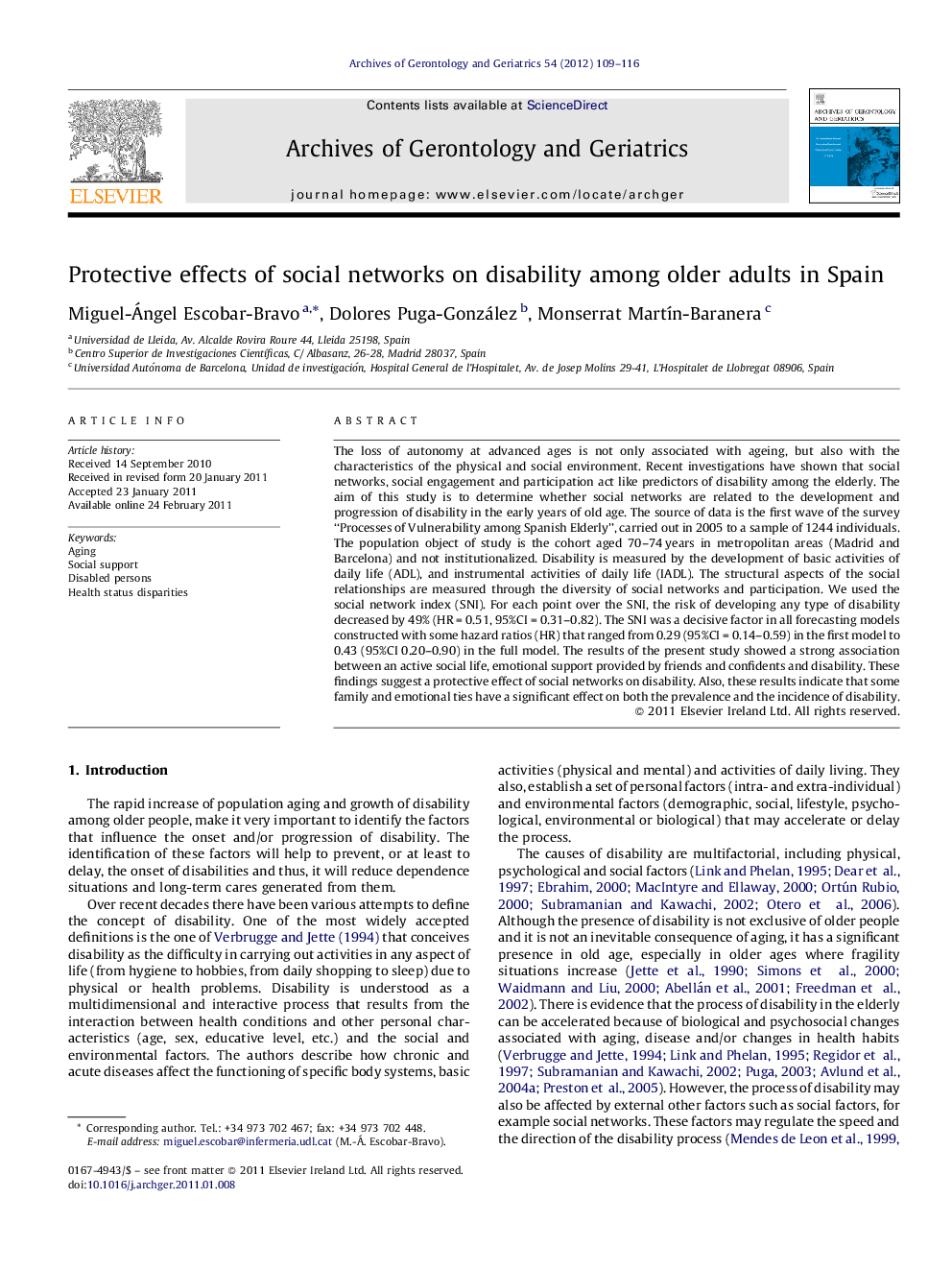| Article ID | Journal | Published Year | Pages | File Type |
|---|---|---|---|---|
| 1903170 | Archives of Gerontology and Geriatrics | 2012 | 8 Pages |
The loss of autonomy at advanced ages is not only associated with ageing, but also with the characteristics of the physical and social environment. Recent investigations have shown that social networks, social engagement and participation act like predictors of disability among the elderly. The aim of this study is to determine whether social networks are related to the development and progression of disability in the early years of old age. The source of data is the first wave of the survey “Processes of Vulnerability among Spanish Elderly”, carried out in 2005 to a sample of 1244 individuals. The population object of study is the cohort aged 70–74 years in metropolitan areas (Madrid and Barcelona) and not institutionalized. Disability is measured by the development of basic activities of daily life (ADL), and instrumental activities of daily life (IADL). The structural aspects of the social relationships are measured through the diversity of social networks and participation. We used the social network index (SNI). For each point over the SNI, the risk of developing any type of disability decreased by 49% (HR = 0.51, 95%CI = 0.31–0.82). The SNI was a decisive factor in all forecasting models constructed with some hazard ratios (HR) that ranged from 0.29 (95%CI = 0.14–0.59) in the first model to 0.43 (95%CI 0.20–0.90) in the full model. The results of the present study showed a strong association between an active social life, emotional support provided by friends and confidents and disability. These findings suggest a protective effect of social networks on disability. Also, these results indicate that some family and emotional ties have a significant effect on both the prevalence and the incidence of disability.
